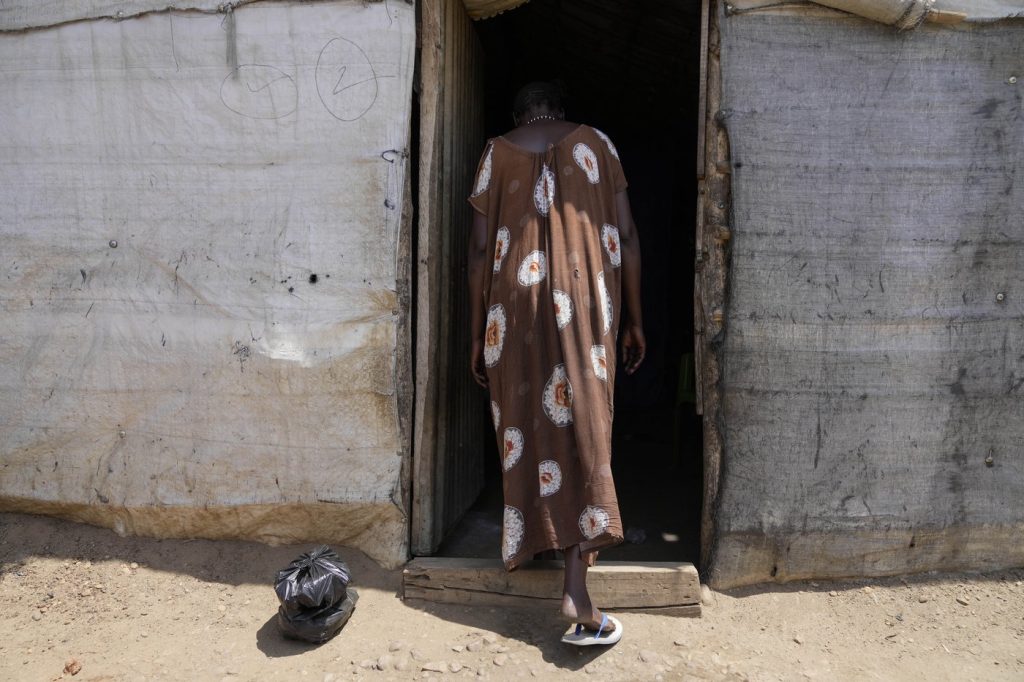In Juba, South Sudan, a 28-year-old woman recounted her traumatic experience after being gang-raped by armed men while collecting firewood. With no access to medical assistance and lacking funds for treatment, she faced a harrowing journey towards recovery. Five months later, she lay in a displacement camp, feeling unheard and now pregnant due to the assault. The Associated Press has chosen not to disclose the identities of sexual assault survivors.
Sexual violence remains an ever-present risk for many women in South Sudan, prompting aid organizations to explore innovative ways to assist survivors. One such initiative is a WhatsApp-based chatbot developed by an Israel-based organization called IsraAID. This technology allows survivors to anonymously report their experiences, and it sends immediate notifications to social workers who can provide assistance within hours. Rodah Nyaduel, a psychologist with IsraAID, highlighted how the technology improves communication and reduces the chances of losing critical information.
Despite the potential benefits, technological solutions face several barriers. Poor connectivity, widespread illiteracy, and skepticism about data privacy challenge implementation in South Sudan. Experts emphasize the importance of safeguarding data and ensuring survivors' information does not fall into the wrong hands. IsraAID assures that its data is encrypted and anonymized, automatically deleting information from staff devices after use. In just three months following its launch in late 2024, the chatbot was instrumental in reporting 135 cases of sexual assault.
When the woman was raped, she was acutely aware of the urgency to receive medical care. After being turned away from one aid group, which merely recorded her information on paper, she felt hopeless as time passed with no support. It wasn't until weeks later that she learned she was pregnant. IsraAID eventually found her during a door-to-door outreach initiative. Initially hesitant about sharing her story through the chatbot, she gained confidence knowing the organization was using dedicated devices rather than personal phones.
The plight of displaced individuals in Juba continues as many live in camps even after a peace agreement was signed in 2018, ending a brutal civil war. Fears of violence, especially sexual assault, deter women from leaving the camps for essential resources like firewood. A significant number report being victimized, and many struggle with limited access to healthcare services owing to reductions in international aid and government support.
The situation has been exacerbated by recent decisions from the U.S. government to freeze funding for USAID during a review process, impacting vital services, particularly those providing psychological support for women. Despite the potential of technology, many organizations focus on gender-based violence still grapple with the best ways to implement effective measures in a country with dismal mobile connectivity—less than 25% market penetration, as reported by GSMA. Survivors express a desire for immediate assistance and prefer digital intervention over traditional methods due to stigma and logistical challenges.
Mercy Lwambi, gender-based violence lead at the International Rescue Committee, noted that many survivors want quicker, less formal avenues to seek help rather than waiting for in-person appointments. The need for sensitive approaches is crucial; particularly for young girls who must obtain permission from family to leave their homes. Whenever technology is employed, it must consider the low literacy levels and accessibility of devices, ensuring that the experience remains engaging and safe for users.
Some survivors wish simply to be heard, emphasizing the need for organizations to build trust within communities. A 45-year-old man, a father of 11, shared his long journey to seek help after being raped by his wife. It took several visits from aid workers before he felt comfortable enough to discuss his trauma. He urged that increased community engagement is vital for successful outreach and support. Without the presence of organizations, many individuals would remain silent about their suffering.










